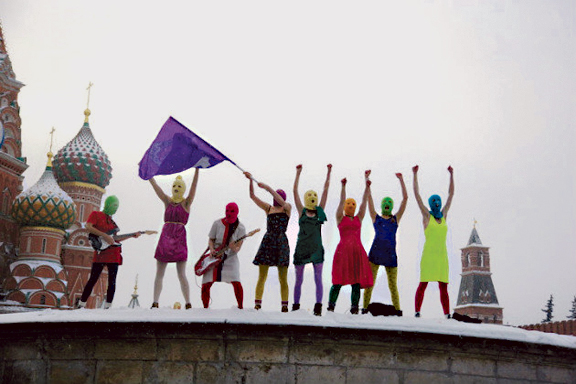Aural Fixation: The Power Of Pussy
Thanks, Rioteers


Pussy Riot/Live Journal

Latest Article|September 3, 2020|Free
::Making Grown Men Cry Since 1992


Pussy Riot/Live Journal
